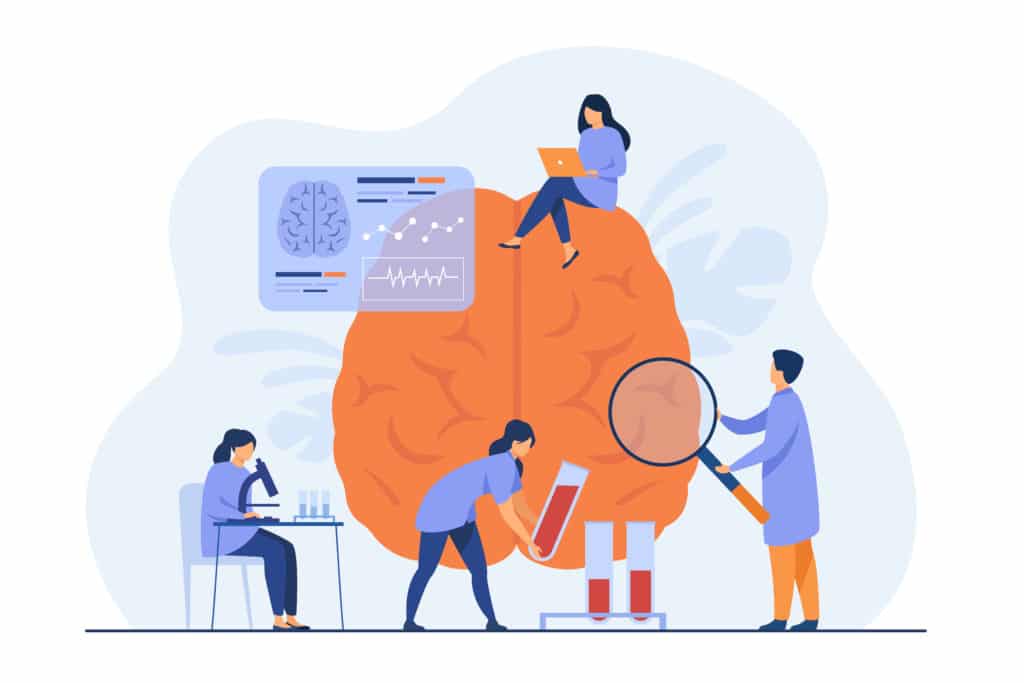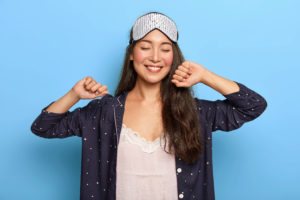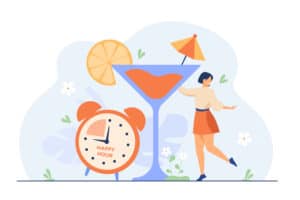
THE BOTTOM LINE:
- Just one drink can have a serious impact on your sleep
- Booze makes you drowsy… but disturbs and blocks restful sleep
- Drinking guidelines: not within 3 hours of bedtime, drink plenty of water.
People around the world turn to alcohol to help them fall asleep — but is it that nightcap actually helping? A little booze may help you fall asleep, but alcohol can wreak havoc on your peaceful slumber during the second half of the night. This is known as the “rebound effect” or the “why am I awake at 5 am with a bunch of energy?” effect.
Why does alcohol help me fall asleep?
Alcohol mimics an important chemical messenger in your brain called GABA. This causes a sedative effect in your body which is the main reason that nightcaps are so popular.
How does alcohol disrupt sleep?
- It pumps you up: Alcohol disrupts the chemical balance in your brain. As your body metabolizes alcohol, your brain responds to this disruption by blasting an excitatory chemical messenger called glutamate. Excitatory chemicals aren’t exactly helpful for sleep.
- It disrupts your sleep cycles: Alcohol’s sedative effect means you fall into deep sleep more quickly. This sounds nice but it can create an imbalance in your sleep cycles which reduces sleep quality and quantity.
- It makes you an annoying person to sleep with: Alcohol is a diuretic, which means it causes your body to lose extra fluid. This leads to more bathroom breaks and can exacerbate snoring and sleep apnea.
How can I reduce the effects of alcohol on my sleep?
- Skip the nightcap: Most guidelines say that you should wait four hours between your last drink and bedtime. However, research has shown that alcohol consumed even six hours before bedtime can negatively impact your sleep.
- Stay Hydrated: You can also reduce some of the side effects by keeping hydrated. Experts recommend that you drink one glass of water for every serving of alcohol.
- Know your limits: Just one drink can disrupt your sleep. One drink is usually equivalent to about a can (12 ounces) of beer, a glass (5 ounces) of wine, or a shot (1.5 ounces) of spirits. The more alcohol you drink, the more your sleep can be disrupted.
- Anti-Hangover Supplements: Taking supplements like Dihydromyricetin or N-Acetyl cysteine and a multivitamin two hours before you drink can help reduce some side effects of alcohol’s toxins. They aren’t a cure but they can reduce the pain. Learn more about anti-hangover supplements.
How does alcohol tolerance affect sleep?
Even though regular drinkers tend to build up a tolerance to the sedative effects of booze, sleep disturbances caused by alcohol do not decrease. It’s an unfortunate reality, but long-term alcohol use is associated with chronic sleep problems.
How does my body break down alcohol?
Your body treats alcohol like a toxin that it must eliminate. Your liver is primarily responsible for the detoxification of alcohol.
- Alcohol leaves the body at an average rate of 1 drink per hour (0.015 g/100ml/hour). For someone with a blood alcohol content of 0.08 (when it becomes illegal to drive), it will take around 5.5 hours for your body to rid itself of alcohol.
- Certain factors such as body size, medications, food in your stomach, gender, race, and family history can all affect the speed at which your body metabolizes alcohol.
ACTIONS TO REDUCE ALCOHOL’S IMPACT
- Try to have your last drink more than 3 hours before bedtime.
- Stay well hydrated to mitigate alcohol’s dehydrating effect.
- Eat before you drink to slow the absorption of alcohol into your bloodstream.
Bottom Line: Alcohol and sleep don’t mix. Skip the nightcap if you are aiming for a quality night’s rest.

SWAN DIVE INTO SCIENCE!
Alcohol and the rebound effect
- Alcohol’s rebound effect: While alcohol shortens sleep-onset (falling asleep quicker), the sedative effects are reversed as alcohol metabolism completes. Alcohol has activity on adenosine and GABA receptors, which inhibit an excitatory neurotransmitter called glutamate. As the alcohol is metabolized, your brain boosts glutamate, creating a disruption to your sleep.
- Alcohol and adenosine: Alcohol helps us feel sleepy is due to its action on adenosine. Adenosine is a chemical in the body that helps to regulate sleep. Consuming alcohol boosts extracellular levels of adenosine which then blocks cells in the basal forebrain that promote wakefulness. This leads to increased initial sleepiness but also disrupts homeostasis, which reduces the quality of our sleep and puts us at risk for sleep disorders.
Alcohol physiologically impacts your body’s ability to get restful sleep
- Alcohol disrupts the circadian rhythm: Alcohol inhibits sleep-wake regulators melatonin and adenosine, impairing the function of your internal clock.
- Affects sleep architecture: During alcohol metabolism, slow-wave Non-REM sleep increases while mentally restorative REM sleep decreases.
- Alcohol interferes with REM sleep: Alcohol interferes with REM sleep by delaying its onset and reducing our total time spent in REM. Lack of REM sleep is associated with sleep disorders and can have detrimental effects on concentration, motor skills, and memory.
Follow up on the science:
- Alcohol caused 24%-39% less restorative sleep in a study of over 4,000 people. (link)
- Our ability to metabolize alcohol decreases with age due to changing enzyme levels, which increases the sleep-disrupting side-effects of alcohol. (link)
- In studies examining people who drink heavily, up to 72% have insomnia (link)
- One study found that melatonin was reduced by 19% at 190 minutes after consumption of an alcoholic beverage (link)






